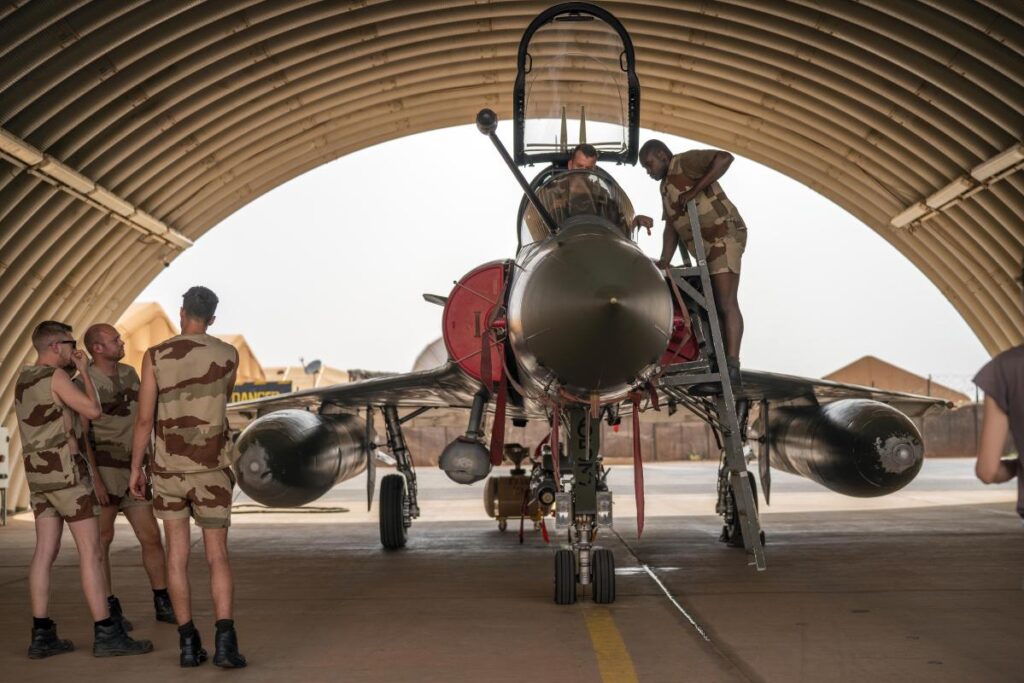France has officially begun its military withdrawal from Chad, a significant move marked by the departure of two Mirage fighter jets previously stationed in the country. This transition follows Chad’s recent termination of a defense cooperation agreement with France, which has traditionally supported the African nation in its fight against terrorism in the Sahel region. Historically, Chad has been a vital ally for France, contributing significantly to regional stability. However, the evolving political landscape in Chad and surrounding nations like Niger, Mali, and Burkina Faso—where French troops have faced increasing hostility—highlights the changing dynamics of international military partnerships in the region.
The departure of the Mirage 2000-D jets took place from a French military base in the capital, N’Djamena, where Chadian troops gathered to bid farewell. The jets are returning to their home base in Nancy, France. According to French military spokesman Colonel Guillaume Vernet, discussions continue with Chadian officials regarding the timing and logistics of further withdrawals of the remaining 1,000 French troops stationed in Chad. The gradual disengagement process is seen as a response to growing sentiments within Chad to reorient its defense strategies and adjust military partnerships.
Chad’s decision to end the defense cooperation agreement with France underscores a desire for autonomy in its defense policies. The Chadian government, which gained independence in 1960, views this termination as a pivotal moment in its national identity and a means to redefine strategic alliances that align more closely with its own national interests. While officials insist that this move does not diminish the countries’ longstanding historical relationship, it does suggest a shift in how Chad intends to approach international partnerships moving forward.
Public sentiment in Chad exhibits a notable desire for sovereignty, illustrated by recent protests in N’Djamena where demonstrators called for the complete withdrawal of French troops. The chants of “Chad for us, France out!” and the display of banners advocating for the removal of French presence indicate a growing nationalist sentiment among the populace. The protests reflect wider discontent with former colonial influences and a push for Chad to reclaim its agency in regional affairs.
The departure of French forces from Chad is part of a broader trend in the Sahel, where growing anti-French sentiment has led several countries to distance themselves from France following years of military cooperation. France’s military involvement, which was initially welcomed as a necessary counterterrorism effort against groups such as Boko Haram and ISIS, has increasingly come under scrutiny. This has allowed other powers, notably Russia, to gain traction in the region, as evidenced by the deployment of Russian mercenaries to fill the void left by departing French troops.
In conclusion, the withdrawal of French military forces from Chad marks a significant turning point in the nation’s defense posture and its relationship with France. While the departure of French troops reflects a broader regional trend of reevaluating past alliances, it also opens up opportunities for Chad to explore new partnerships that align with its own national interests. The protests in support of troop withdrawal highlight the demand for greater independence and a shift in public sentiment towards a more self-reliant approach to national security, emphasizing the importance of local ownership in addressing the challenges facing the nation and the region at large.

